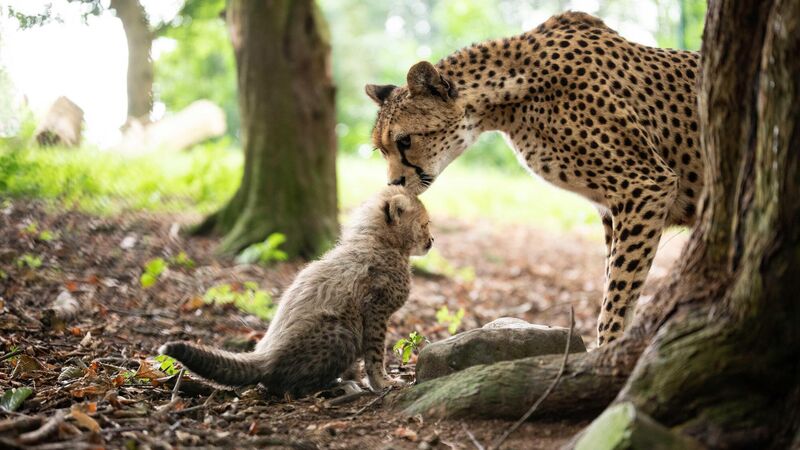Fota Wildlife Park faces permanent closure if visitors cannot return within weeks

Northern cheetah Nimpy with one of her three cubs photographed in August last year in the Cheetah Hill area of Fota Wildlife Park in Co Cork which is now under threat of closure. Pic: Darragh Kane
Fota Wildlife Park may have to close its doors for good unless it is can reopen to visitors within the next few weeks.
As the park is largely an outdoor attraction, it was able to remain open through last year's lockdown period. However, its visitor numbers dropped significantly — 385,000 people visited the park last year, a decrease of 18% on the previous year.













